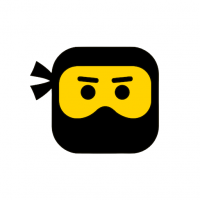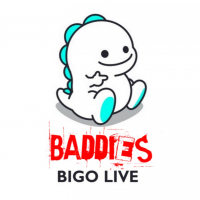What is "hix" and other Twitch slang words?
If you have just started watching streams on Twitch or decided to become a streamer, you have probably encountered unfamiliar words in the chat: “hix”, “flexing”, “crab”, “kef”, “monk”, and dozens of others.
For beginners, Twitch slang may sound like a foreign language, but in reality, it is an important part of the platform’s internal culture. Let's break down what “hix” and other popular terms mean that every viewer and streamer should know.
What “Hix” (hix) Means on Twitch
The word “hix” (hix) appeared in the Russian-speaking Twitch community relatively recently and became a meme. Initially, it was used ironically to evaluate a streamer’s failed or comical action. When someone does something silly, viewers write in chat: “Well, hix!” or just “hix.”
Gradually, the meaning expanded. Today, “hix” can indicate:
- An awkward situation on a stream;
- An in-game mistake;
- A funny fail;
- A reaction to inappropriate behavior;
- Light trolling of a streamer.
In other words, “hix” is similar to the words fail, cringe, or mistake but with a unique Twitch twist. Sometimes, it is used to refer to the streamer themselves if they frequently get into silly situations: “This streamer is a total hix, but it’s fun to watch!”
Origin of the Term
There is no specific author of the meme word hix — it spread in Russian-speaking Twitch in 2022–2023 when viewers actively created their own analogs of Western phrases. Some link its origin to a random typo in the chat or the nickname of a lesser-known streamer who often had comical fails. In any case, “hix” became a viral symbol of failure and settled into the slang. Now it can be seen not only on Twitch but also on TikTok, Discord, and Telegram chats with streamers.
Why Twitch Has So Much Slang
Twitch is not just a live streaming platform but a huge community with its own culture. Viewers and streamers gradually developed their own language: short phrases, memes, abbreviations, and reactions that help express emotions quickly. Additionally, Twitch is closely tied to the gaming world, which also has many specific terms. Over time, all of this merged into a unique Twitch slang, understandable only to the “insiders.”
Top 20 Popular Twitch Slang Words (and Their Meanings)
Here are the most frequently encountered expressions so you can confidently navigate any chat.
- Hix — mistake, fail, awkward moment on a stream.
- Cringe — secondhand embarrassment, awkwardness caused by a streamer or viewer.
- Flex — showing off achievements, boasting about something on stream.
- Monk — from English monkaS, anxiety or stressful reaction when something goes wrong.
- Pepega — fool, someone doing dumb actions (from the Pepe frog meme).
- OMEGALUL — laughing to tears, similar to “haha” in chat.
- EZ — from “easy,” an easy win, often used sarcastically.
- Kef — pleasure, fun, relaxed stream atmosphere.
- Crab — a viewer who sits quietly and doesn’t chat (like a crab hiding in a shell).
- Scam — deception or fake. Example: “This giveaway is a scam.”
- Boost — promote, grow a channel, viewers, or activity.
- Farm — earn points, donations, subscribers, or in-game items.
- Loot — reward, treasure, something valuable gained in-game or on stream.
- Tilt — irritation or loss of focus after a failure.
- Face — showing your face, especially if the streamer was previously camera-less.
- Prime — Twitch Prime service, subscription providing bonuses and free subs.
- Sub — paid subscription to a channel.
- Host — run another streamer’s broadcast on your channel.
- Raid — redirect viewers from one channel to another after a stream ends.
- Clip — create short video highlights from a stream.
How Twitch Slang Is Created
Most expressions are born within the community. Sometimes it’s a typo, sometimes a reaction to a specific streamer. If a word goes viral, it starts being used on other channels and eventually becomes part of the general Twitch vocabulary.
For example:
- “Crab” appeared after a streamer mentioned passive viewers.
- “Hix” became a meme after a series of fails that users actively clipped.
- “Monk” and “Pepega” came from Western Twitch and the Pepe frog meme.
Twitch slang constantly evolves — each generation of viewers adds something new.
Why Understanding Twitch Slang Is Important
For streamers, knowing the terms is key to communicating with the audience. If you don’t understand what “crabbing”, “hixing”, or “tilting” means, you might lose contact with the chat. Viewers appreciate when the streamer “speaks their language,” which builds trust, unity, and humor.
For viewers, understanding slang is a way to become part of the community and participate in discussions on equal footing.
How to Use Slang Correctly
Despite its ironic nature, moderation is important. If chat is constantly flooded with phrases like “hix!” or “cringe!”, it can appear as trolling. Try to use slang in context — with humor but without aggression. Streamers should also explain new words to beginners so they don’t lose new viewers.
New Twitch Words in 2025
- AI overlay — stream design with neural network elements.
- Hard-carry — to carry a match alone.
- Godlike — an incredibly impressive moment.
- Shipping — discussing romantic streamer couples.
- Vibe — stream mood or channel atmosphere.
- Facecam — stream with a camera.
- Just Chatting — format where the streamer simply talks with viewers.
Conclusion
The word “hix” (hix) is one of the most recognizable memes of Russian-speaking Twitch, indicating a streamer’s mistake or fail. But behind this term lies a whole communication culture, with its own memes, emotions, and expressions.
Understanding Twitch slang helps you fit into the community, make streams lively, engaging, and closer to viewers. Streamers should use slang wisely, create their own memes, and maintain the channel’s style. Viewers should learn these words and feel free to chat — Twitch is not just a broadcast, but a conversation where every comment creates the atmosphere.
Our Services for Streamers
Our Services for Content Creators











